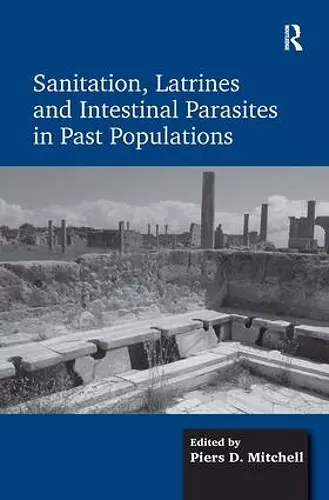Sanitation, Latrines and Intestinal Parasites in Past Populations
Format:Hardback
Publisher:Taylor & Francis Ltd
Published:28th Feb '15
Currently unavailable, and unfortunately no date known when it will be back

Sanitation and intestinal health is something we often take for granted today. However, people living in many regions of the developing world still suffer with debilitating diseases due to the lack of sanitation. Despite its clear impact upon health in modern times, sanitation in past populations is a topic that has received surprisingly little attention. This book brings together key experts from around the world to explore fascinating aspects of life in the past relevant to sanitation, and how that affected our ancestors. By its end readers will realize that toilets were in use in ancient Mesopotamia even before the invention of writing, and that flushing toilets with anatomic seats were a technology of ancient Greece at the time of the minotaur myth. They will see how sanitation compared in ancient Rome and medieval London, and will take a virtual walk around the sanitation of York at the time of the Vikings. Readers will also understand which intestinal parasites infected humans in different regions of the world over different time periods, what these parasites tell us about early human evolution, later population migrations, past diet, lifestyle, and the effects of sanitation technology. There is good evidence that over the millennia people in the past realized that sanitation mattered. They invented toilets, cleaner water supplies, drains, waste disposal and sanitation legislation. While past views on sanitation were very different to those of today, it is clear than many past societies took sanitation much more seriously than was previously thought.
"Evidence in this volume, and hopefully future research inspired by it, is relevant to grounding several theoretical frameworks in anthropology and related disciplines, namely public health, particularly epidemiologic transition theory, and, more specifically, the hygiene hypothesis."
- Molly K. Zuckerman, Mississippi State University, USA
"[this book] is the first collected work on this subject and it appearance is timely given recent scholarly interest in parasties and health in bio-archaeology. The book is notable for drawing together studies that approach hygiene and sanitation from diverse perspectives: a wide range of topics are represented"
- Elizabeth Craig-Atkins (University of Sheffield, UK) in the journal for the Society of Medieval Archaeology
ISBN: 9781472449078
Dimensions: unknown
Weight: 682g
290 pages